Gaining new clients and boosting website traffic are both dependent on SEO for construction companies. Making sure your website is optimized makes you visible in search engine results and draws in visitors. Construction companies face particular difficulties with SEO tactics, such as local competition and needs of specialized markets. This post offers doable SEO advice to increase website visitors.
Important strategies include using Google My Business for local SEO, tweaking page titles and meta descriptions, and conducting keyword research to find pertinent search terms. Blogging and presenting project highlights as part of content marketing can also improve visibility. Mobile optimization and website performance are two crucial technical SEO enhancements.
Putting these tactics into practice will help you become much more visible online and facilitate client discovery of your services. See reliable websites like Moz and Google’s SEO Starter Guide for a thorough, step-by-step tutorial on SEO for construction companies.
Identifying Relevant Keywords for Construction Companies
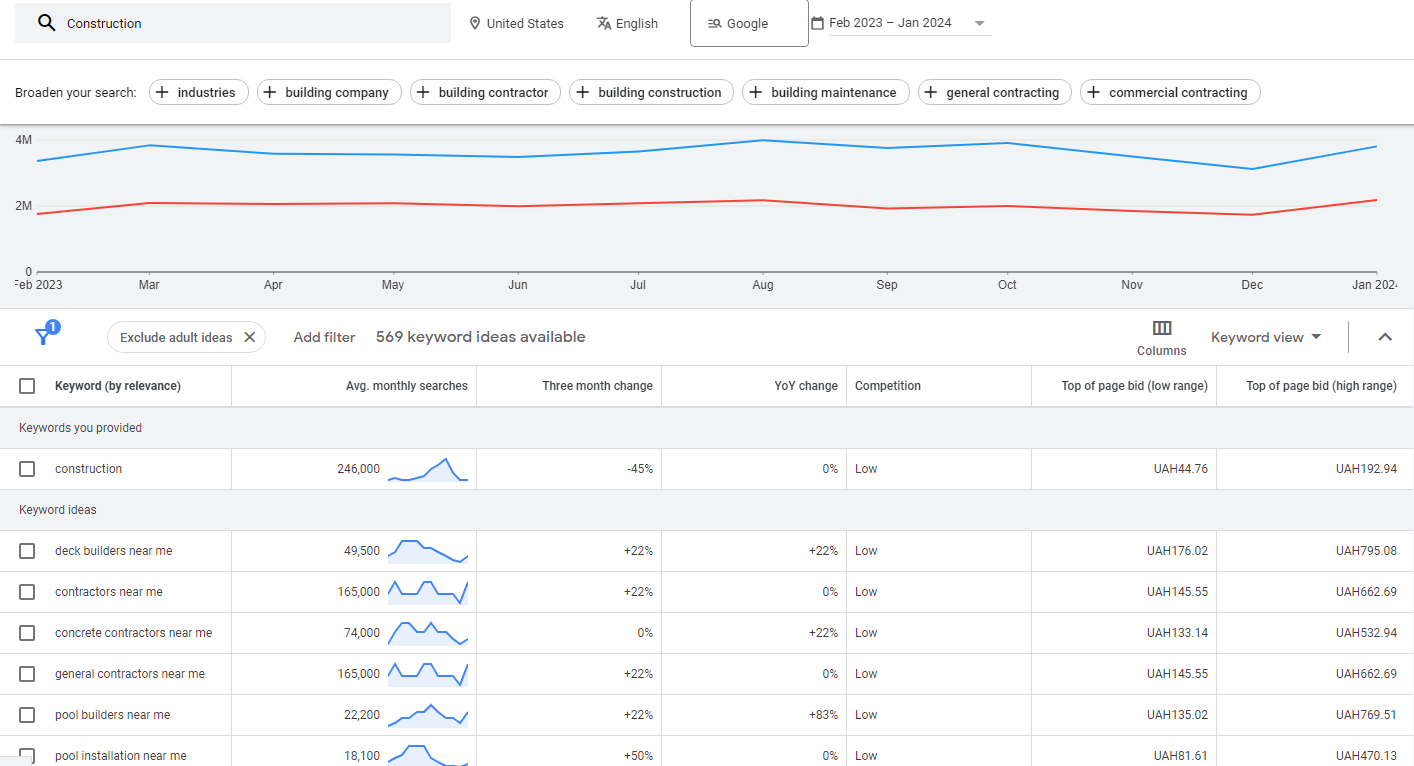
Success with SEO in the construction sector depends on selecting the appropriate keywords. Keywords ought to be a reflection of the services provided and the terms that prospective clients search. Locate popular and pertinent keywords with the help of SEMrush, Ahrefs, and Google Keyword Planner.
Relevance of Selecting the Correct Keywords
- Draws in specific traffic
- Boosts search engine results
- Pulls in possible clients
Tools and Methodologies for Keyword Research:
- Google Keyword Planner provides search volume information together with keyword ideas.
- SEMrush offers scores for keyword difficulty and competitive analysis.
- Ahrefs provides backlink analysis and keyword suggestions.
- Ubersuggest: Offers content recommendations and keyword ideas.
- Visualizes search terms and topics with AnswerThePublic.
Think on relevance and user intent while choosing keywords. Concentrate on a combination of general and specialized terms that pertain to your services, including “home remodeling,” “commercial construction,” and “roof repair.” To find openings and gaps, examine the keywords of your competitors. Construction firms may improve their SEO efforts, draw in more visitors, and turn them into customers by carefully selecting keywords. See Moz’s Keyword Research Guide and Google’s Keyword Planner tool for more in-depth advice.
On-Page SEO for Construction Companies
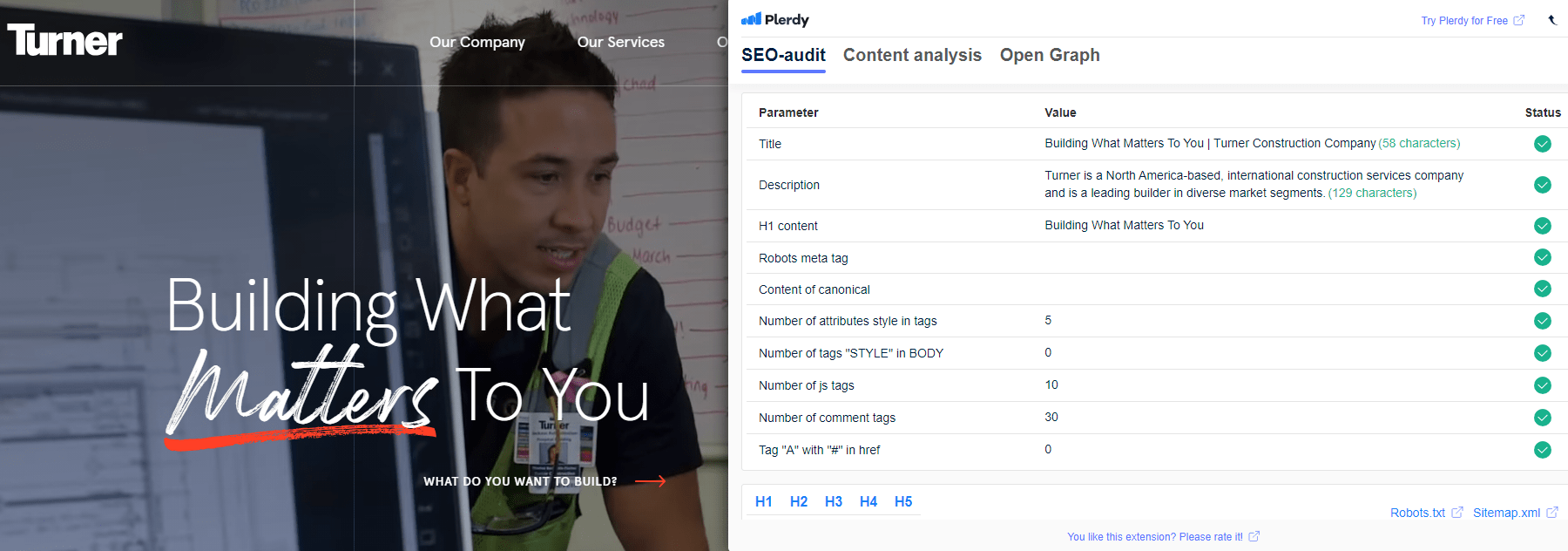
Streamlining Meta Descriptions and Page Titles
Search engine visibility and click-through rates are greatly increased by optimizing page names and meta descriptions. Primary keywords should be used in titles, which should be no more than sixty characters long and fairly sum up the information on the page. Limited to 150–160 characters, meta descriptions should give a succinct synopsis of the page together with a clear call to action.
Header Tags and Organization of Content
Search engines are better able to understand your page structure when you use header tags (H1, H2, H3) to improve content organization and readability. The major keyword and the main topic of the page should be described in the H1 element. Create subtopics in your content with H2 and H3 tags to facilitate user and search engine navigation.
Standards for Content Organization:
- H1 Tag: Main topic and primary keyword.
- H2 tags: are secondary keywords and subtopics.
- H3 Tags: Detailed information beneath H2 parts.
Compression of Images
Page load speed and SEO both increase with image optimization. Search engines can better index photos if you use alt text with pertinent keywords and descriptive file names. Shrink photos to save space without compromising quality.
Linking Internally
User navigation is enhanced and link equity is distributed throughout your website by internal linking. Connect relevant material to keep visitors interested and direct them around your website.
Methods of Successful Internal Linking:
- Put related keywords on other pages.
- Include contextual, natural links into your writing.
- Retain a sensible link hierarchy.
See the Moz On-Page SEO Guide for additional on-page SEO tactics.
Local SEO
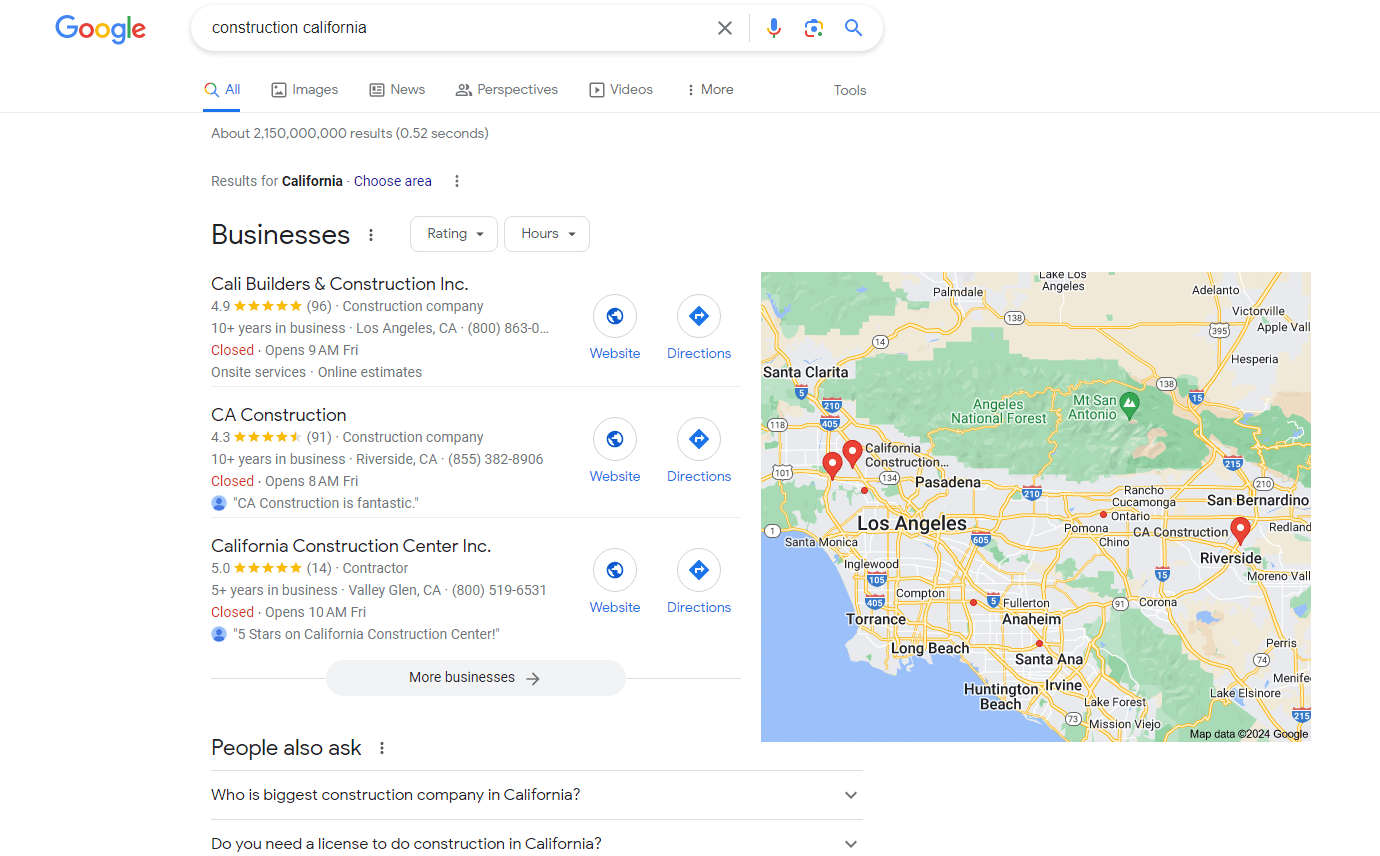
Goog My Business
Local SEO depends on having your Google My Business (GMB) profile set up and optimized. By appearing in local search results, GMB helps construction companies draw in more business. Make sure all company information is correct and full before starting a GMB profile.
How to Make Your GMB Profile More Effective:
- Verify that your company name, address, and phone number (NAP) are accurate.
- Business categories: Choose those that most accurately characterize your offerings.
- Premium Images: Share images and videos that highlight your work.
- Customer Reviews: Urge pleased customers to write good reviews and reply to them.
- Post updates on your services and special offers on a regular basis to maintain your profile active.
Your local search exposure is much increased by an optimised GMB profile. GMB signals are a major ranking element for local SEO, claims Moz. Keeping your profile current increases your internet exposure and draws in local business.
Listings and Citations in Local Area
For construction companies, a good local SEO plan depends on local listings and citations. Citations are online visibility and local search engine rankings improvements made when your business’s NAP is mentioned on other websites.
Value of Regional Citations
- Increase local search exposure
- Create trust and credibility
- Raised positions in search engines
Guide to Creating and Managing Local Listings:
- Claim and Verify Listings: Make sure top directories like Yelp, Bing Places, and Yellow Pages have your company listed. Take control of and confirm the correctness of your listings.
- Maintain constant NAP information for every listing.
- Directories Particular to Your Industry: Add your company to directories like Houzz and HomeAdvisor that are particular to your industry.
- Watch and Update: To reflect any changes, check and update your listings often.
Local search results can be improved with good local citation management. According to BrightLocal, successful local SEO requires precise citations. Paying attention to local citations increases a construction company’s web profile and draws in additional customers.
Content Marketing for Construction Companies

Articles and Blogging
For construction companies, regular blogging is a potent content marketing tactic. It establishes sector authority, draws in new business, and enhances SEO. Regular blogging increases search engine rankings for your website by offering current, pertinent material.
Benefits of Consistent Blogging:
- Improved SEO: Consistent updates using focused keywords raise search visibility.
- Enhanced Traffic: Interesting information draws people to your website.
- Building Authority: By imparting industry expertise, your business becomes known as an authority.
Concepts for Construction Companies:
- Project Updates: Disseminate information and developments of ongoing initiatives.
- Industry Trends: Talk about the newest developments and trends in the building industry.
- How-to Manuals: Offer detailed instructions on typical building jobs.
- Testimonials of Clients: Highlights of happy customers.
- Write on sustainable building methods.
Construction firms may maintain their material interesting and new by concentrating on these subjects, which will draw in a consistent flow of visitors.
Examples and Project Highlights
Producing engaging case studies and project highlights demonstrates your experience and establishes confidence with prospective customers. Case studies show off your problem-solving abilities and calibre of work by offering in-depth looks into finished projects.
Making Engaging Case Studies:
- Detailed Description: Outline the parameters, difficulties, and fixes of the project.
- Images and movies of excellent quality should be included.
- Client Testimonials: Include testimonials from happy customers to boost trustworthiness.
Presentation of Completed Projects:
- Project Gallery: Set up an area on your website just for showcasing finished projects.
- Show changes with before and after pictures.
- Offer video walksthroughs of finished projects.
Emphasising completed projects increases your trustworthiness and gives prospective customers a good idea of your qualifications. See the HubSpot Content Marketing Guide for further tactics on successful content marketing.
Technical SEO

Website Performance and Speed
SEO in the building sector depends heavily on website speed and functionality. Better user experiences on quicker websites translate into greater search engine rankings. Page speed is one of Google’s ranking factors, hence slower websites may show up lower in the results.
SEO Relevance of Site Speed
- Enhanced User Experience: Pages that load quickly lower bounce rates.
- Higher Rankings: Google gives quicker websites preference.
- Higher Conversions: Fast websites result in more interaction and conversions.
Resources and Advice for Boosting Website Performance:
- Google PageSpeed Insights: Speed up and analyse websites.
- GTmetrix offers thorough performance reports.
- Compress Images: To shrink photos without sacrificing quality, use programs like TinyPNG.
- Turn on browser caching to save load times by storing static files.
- Combining files will reduce the amount of HTTP requests made to servers.
Putting these advice into practice will increase the speed of your website, which will raise user satisfaction and SEO results.
Mobile Optimization
Mobile optimization guarantees that your construction website is viewable and friendly on mobile devices. SEO need a mobile-optimized website because more people are accessing the internet via smartphones.
Making Sure Your Website Works on Mobiles:
- Design Responsive: Make sure your website adjusts to various screen sizes.
- Mobile-Friendly Test: Verify if your website is mobile-friendly with Google’s service.
Top Mobile SEO Practices:
- Quick Mobile Loading: Mobile device speed optimization is key.
- Streamlined Navigation: Make sure menus are mobile-friendly for simple navigation.
- Accessible Text: Make use of readable font sizes and spacing.
- Touch-Friendly Design: Make sure links and buttons are very clickable.
Adhering to these guidelines improves mobile user experience and raises search engine results. Mobile-friendly websites appear higher in search results, claims Google. Giving mobile optimization top priority guarantees that your website satisfies the needs of every user, which improves SEO performance overall.
SEO Link Building
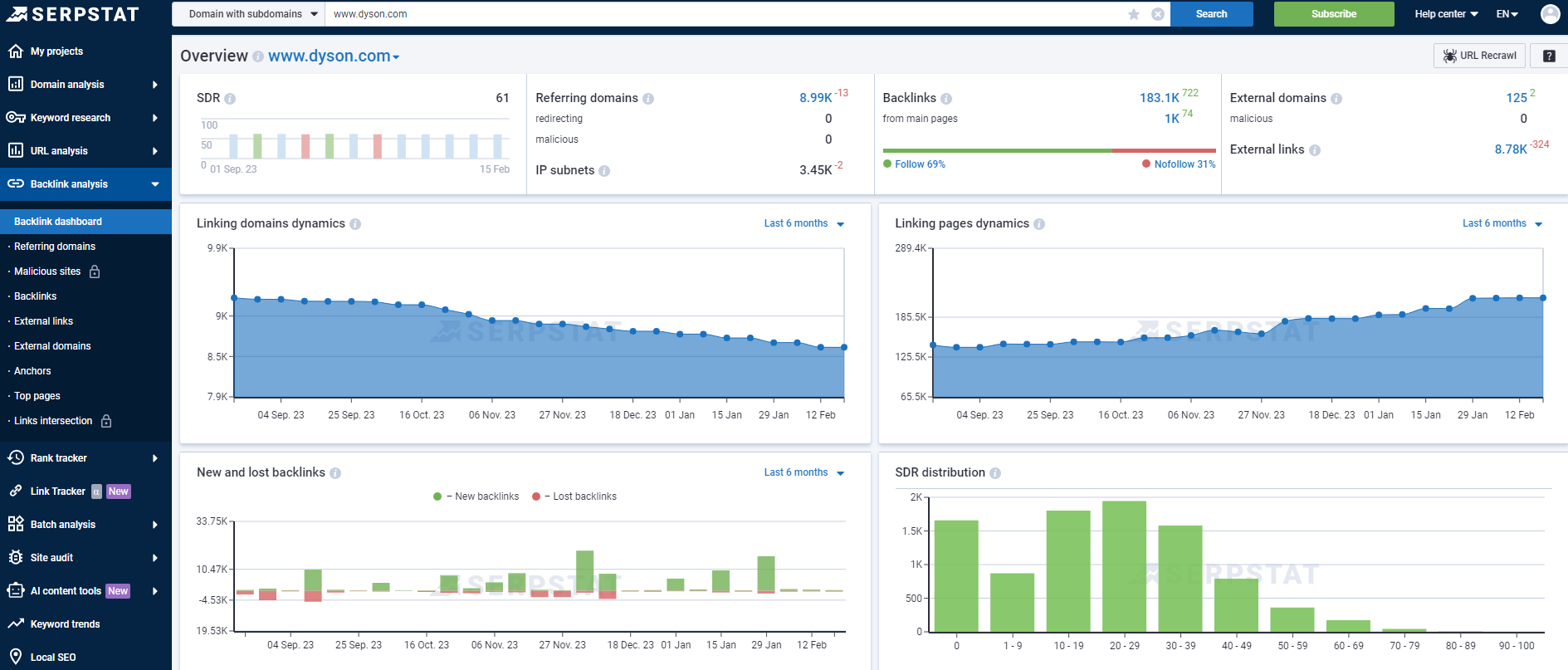
Acquiring Links
Increasing search engine optimization and increasing website traffic require backlink acquisition. Search engine rankings and reputation of your website are increased by backlinks from reputable websites. Backlinks of high quality tell search engines that your material is reliable and valuable.
Methods for Obtaining High-Quality Backlinks
- Produce Excellent Material: Share interesting and educational stuff that people will want to link to.
- Writing posts for respectable building industry blogs and including connections to your website is known as guest blogging.
- Business listings in respectable construction directories are encouraged.
- Broken Link Building: Look for and offer your material as a substitute for broken links on websites connected to your industry.
- Infographics: Make and distribute infographics, urging others to link back to your website.
Through the use of these tactics, construction businesses can increase their SEO performance by obtaining worthwhile backlinks.
Proximity and Networking
Building connections and obtaining backlinks in the construction sector need outreach and networking. Working with partners and industry influencers can improve your backlink profile dramatically.
Establishing Contacts with Industry Influencers:
- Determine Influencers: Determine the important building industry influencers.
- Take Part in Social Media: Share and comment on the material of influencers to engage with them.
- Working together on tasks that benefit both parties is called collaboration.
Promoting Links: Outreach Strategies:
- Personalised Emails: Write bloggers and website owners personalised emails of outreach.
- Offer Value: In return for a backlink, offer insightful information.
- Follow Up: To develop enduring partnerships, keep up communication.
Good networking and outreach can result in high-caliber backlinks that raise the SEO of your site. Visit Moz’s Guide to Link Building for additional advice.
Leveraging Social Media for SEO
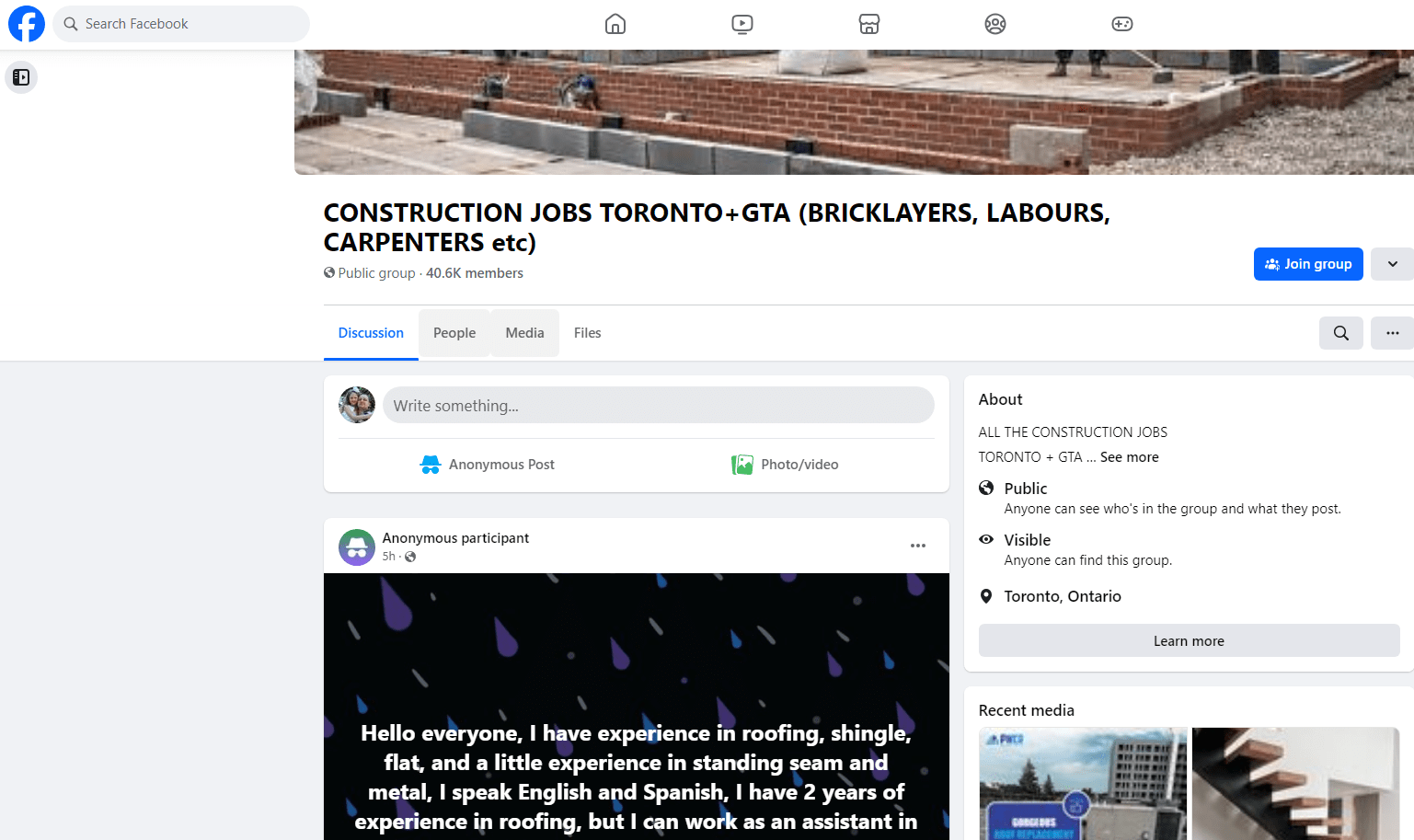
Making the most of social media for SEO can greatly increase the internet presence of your building business. Though it doesn’t directly affect search engine results, social media can improve SEO by boosting link building, brand visibility, and interaction.
The Effects of Social Media on SEO:
- More Visibility: Social media sites increase the audience for your material and direct more people to your website.
- Increased Engagement: Social media likes, shares, and comments can raise the authority and relevance of your material.
- Link Development: Social media sharing of content can draw in backlinks from other websites, which will raise the search engine optimization of your website.
Guidance on Combining Social Media with Search Engine Optimization:
- Post Good Content: Share worthwhile, educational stuff that promotes interaction and sharing.
- Boost Profiles: Make sure your social media profiles are complete, including links to your website, and pertinent keywords.
- Apply Hashtags: To make your postings more visible, use hashtags connected to your sector.
- Connect with Followers: To foster connections and boost interaction, reply to messages and comments.
- Promote Blog Posts: on increase traffic and draw in backlinks, post your blog entries on social media.
- Working with Influencers: To increase your credibility and audience, form partnerships with influential people in your field.
Your construction company can get higher search engine results and more website traffic by successfully incorporating social media into your SEO plan. See the HubSpot Guide to Social Media and SEO for further information.
Analysing and Monitoring SEO Results
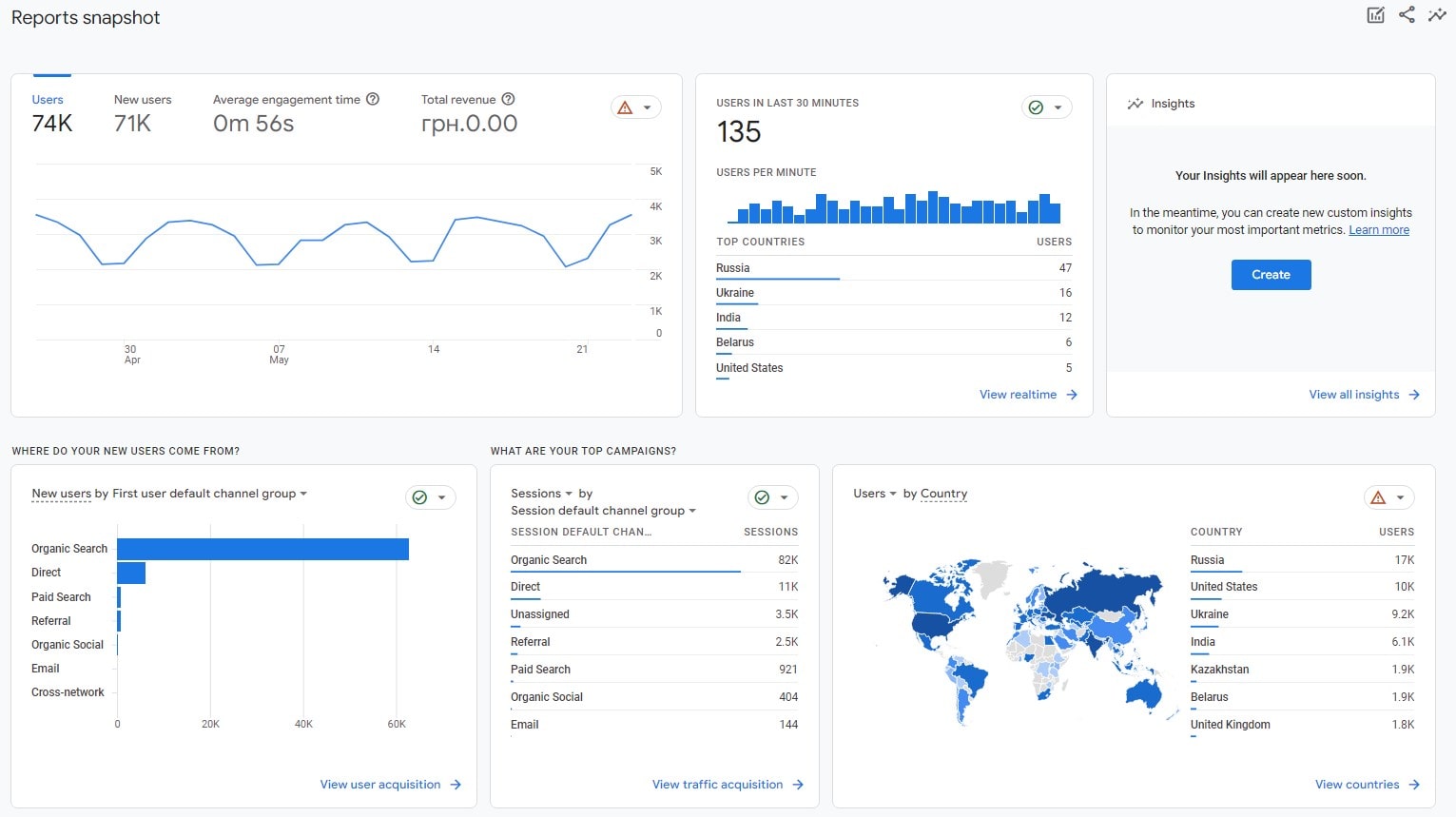
Monitor SEO Results
Knowing how well your website is doing and where work has to be done requires tracking SEO performance. Check important metrics with Google Analytics and Google Search Console. Website traffic, user behavior, and conversion rates may all be tracked with Google Analytics. It offers information about where customers stop off, how they move about your website, and which pages draw the most traffic. Search performance data from Google Search Console includes keyword ranks, click-through rates (CTR), and indexing problems. Regularly examining these statistics might point up areas for improvement and effective tactics. See Google’s official documentation on these products for reliable information.
Traffic and Participation Analysis
Effective refinement of your SEO strategy requires comprehensive analysis of traffic and interaction. To begin, evaluate the information from your monitoring devices. To determine user involvement, look at statistics like pages per session, average session duration, and bounce rate. Find material that works well and learn why. Alternatively, identify underperforming pages to identify possible problems. Make wise choices about site structure enhancements, keyword optimization, and content upgrades using this data. Frequent analysis guarantees ongoing development by enabling you to modify your approach to changing user behavior and search engine algorithms. See industry-standard sites like Moz’s Beginner’s Guide to SEO for more thorough advice.
Verdict
Increasing internet traffic for construction companies depends on successful SEO tactics. Following these ten suggestions can help you become much more visible online and draw in more potential customers. Maintaining a lead over the competition, keep improving your SEO strategies. Try Plerdy for a comprehensive SEO and UX analysis—it will revolutionize your construction company.
React proactively, use SEO resources, and see the website traffic for your construction company soar. Get going now to avoid missing out!
